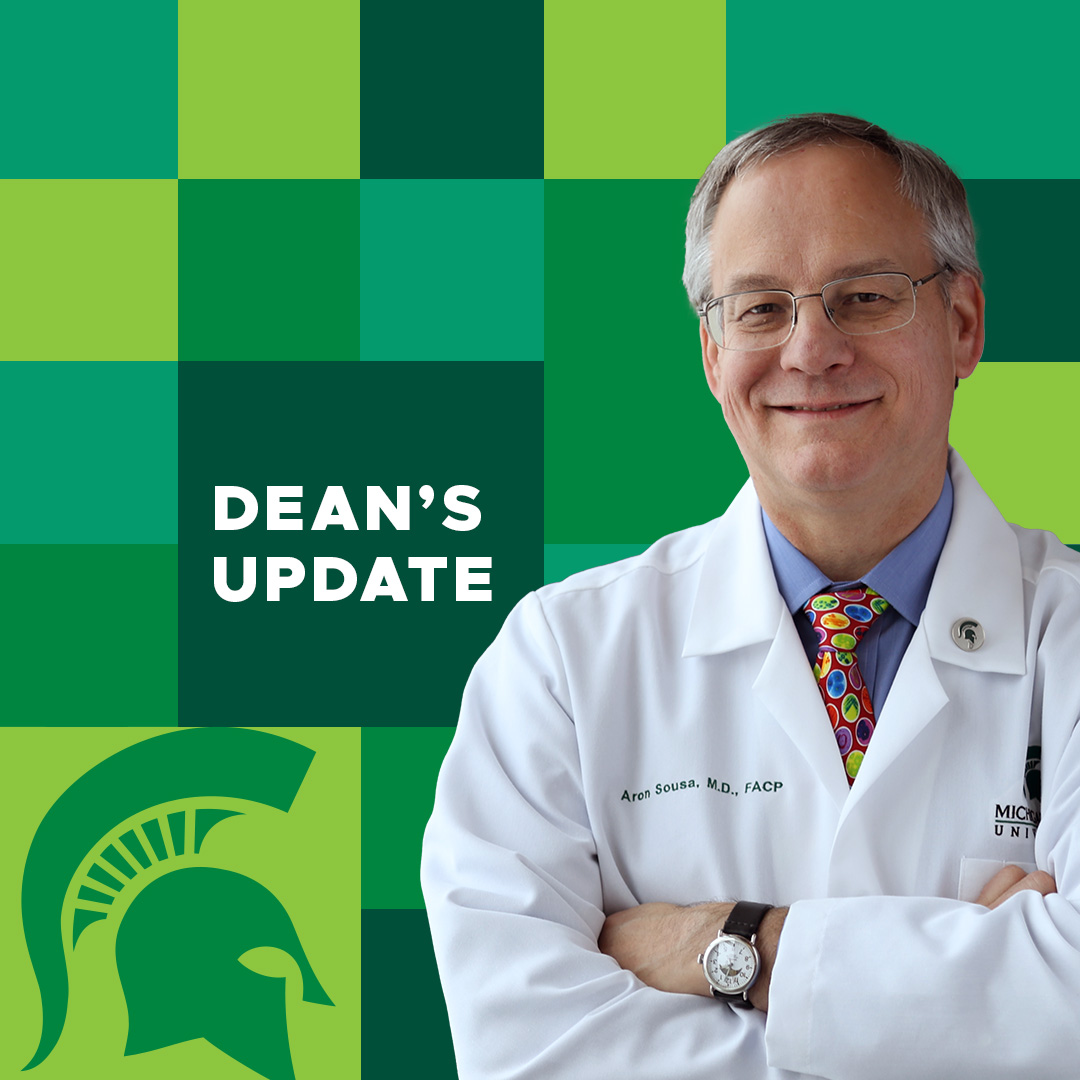Dean's Update
August 1, 2025 - Aron Sousa, MD
 Friends,
Friends,
Last week I was in Flint at the Baby Parade as a part of Rx Kids. This week, I was in Holland meeting with seniors who are in the Hope Academy of Senior Professionals (HASP), a project of Hope College that brings seniors together for lectures and courses as a part of lifelong learning. Many universities, including Michigan State, have similar programs, although the two hundred or so people who turned up to talk with me were more engaged and energetic than most public audiences I get to meet.
The conversation was a lot of fun, and I had the chance to meet a college alum, Russell Dykstra, MD (’86), who was a family medicine physician in the Holland area for years. Given the testimonial he gave during the Q&A of my talk, we should put him on the payroll. Back in the era of the draft, the future Dr. Dykstra joined the military and became a high-level technician for the Navy. He used the GI Bill to go to college at Hope and then on to the College of Human Medicine and our focal problems curriculum. Perhaps the most interesting piece of his story was the alignment and congruence between how the Navy taught him to broadly understand his field and to think critically about the work he would do and how CHM taught him to broadly understand medicine and think critically about the work he would do. Amid all the people there for a little senior learning, Dr. Dykstra gave a great explication of case-based learning.
Everything he said is still true. Great education comes from understanding the real-world performance you expect of your graduates, creating assessments that will demonstrate they can perform as required, and then walking back in time all of the skills, knowledge, and attitudes they will need to eventually demonstrate their competence such that we can trust them to perform when they are on their own.
The College of Human Medicine’s focal problems curriculum of the early 1970s was one of the earliest versions of problem-based learning (PBL) in a U.S. medical school. It was rare then, but almost every MD school uses some version of that now. Our current curriculum uses the same kind of case-based teaching related to Chief Complaints and Concerns. We use written patient cases, which are mostly made up, but anyone who has written one of these cases knows the authors draw upon actual patients they have seen. The students then work their way through the case, learning information from basic sciences, like anatomy or pharmacology, or clinical skills, or ethics and health policy, as they work their way toward understanding how to take care of people. By asking students to work through well designed cases in their preclerkship curriculum, we are training their brains to do the kinds of hypothesis-driven diagnostic management and evidenced-based treatment we want to see in the real world.
It is a major mental transition for students to move from lecture-based college courses to the much more independent, adult learning mode of case-based teaching. The college’s current students struggle through that in the first year. In the legacy PBL curriculum, the students struggled through the transition in the second, PBL-based year. And when I was a medical student in a traditional, lecture-based preclerkship curriculum, I struggled with the transition in the third year, when I started my clerkships. Dr. Dykstra made the transition before college in the Navy, and in the true spirit of lifelong learning, is still both teaching and learning from his peers in Holland.
Serving the people with you,
Aron
Aron Sousa, MD, FACP
Dean, Michigan State University College of Human Medicine

